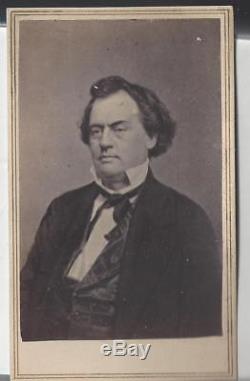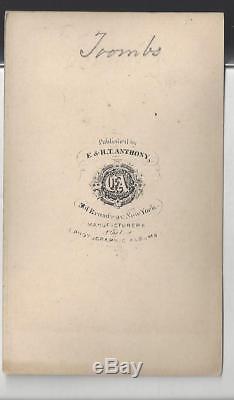
- Homepage
- Conflict
- Format
- Albumen (3)
- Ambrotype (35)
- Cabinet Card (67)
- Cdv (5)
- Crayon Portrait (2)
- Daguerreotype (27)
- Hardcover (14)
- Multi-formats (6)
- Negative Photo Image (4)
- Photograph (6)
- Ruby Ambrotype (3)
- Sixth Plate (2)
- Small (2)
- Stereoview (3)
- Tin Type (8)
- Tin Type Photo (2)
- Tintype (168)
- Tintype Photograph (6)
- Unknown (9)
- ... (6714)
- Photo Type
- Album (12)
- Albumen (14)
- Ambrotype (201)
- Cabinet Photo (67)
- Cdv (482)
- Cdv & Tintype (6)
- Cdvs & Tintypes (7)
- Daguerreotype (84)
- Gelatin Silver (13)
- Mixed (3)
- Negative (10)
- Negative Photo (4)
- Opalotype (4)
- Other (4)
- Photograph (4)
- Snapshot (3)
- Stereoview (23)
- Tintype (536)
- Tintypes (3)
- Unknown (12)
- ... (5594)
- Subject
- Children & Infants (21)
- Civil War (31)
- Civil War Soldier (12)
- Ethnic (17)
- Family (24)
- Fashion & Costumes (10)
- Figures & Portraits (149)
- Genealogy (10)
- Historic & Vintage (90)
- History (24)
- Men (59)
- Men, Civil War (58)
- Men, Military (39)
- Military (98)
- Military & Political (586)
- Military & War (14)
- Portrait (15)
- Portraits (14)
- Soldier (12)
- Women (19)
- ... (5784)
- Theme
- Americana (42)
- Americana, Fashion (18)
- Americana, Militaria (18)
- Antique (8)
- Art (7)
- Civil War (14)
- Conflicts & Wars (7)
- Fashion (19)
- History (44)
- History, Militaria (10)
- Love (6)
- Militaria (1057)
- Patriotic (7)
- People (21)
- Politics (15)
- Portrait (69)
- Portrait, Man (22)
- Stamps (26)
- Travel (6)
- Victorian (7)
- ... (5663)
- Type
- Belt Buckle (3)
- Carte De Visite (2)
- Cdv (3)
- Cdv Photograph (15)
- Daguerreotype (3)
- Full Cdv Photo Album (2)
- Illustrated Book (3)
- Negative Film Photo (4)
- Pendant (3)
- Photo Album (3)
- Photo Frame (2)
- Photograph (1382)
- Photograph Album (52)
- Picture Book (8)
- Picture Frames (8)
- Print (3)
- Real Photo (rppc) (10)
- Tintype (9)
- Tintype Photo (4)
- ... (5567)
Civil War CDV Confederate Congressman/Secy of State Robert A Toombs of Georgia




Robert Augustus Toombs (July 2, 1810 December 15, 1885) was an American politician who was a founding father of the Confederacy and its first Secretary of State. A lawyer by training, he proved an impressive speaker in the U. House of Representatives, and later in the Senate.
Believing strongly in states rights and the extension of slavery, he found common ground with fellow-Georgian Alexander H. He had supported the Compromise of 1850, but came round to advocating secession. In the newly formed Confederate Government, Toombs was appointed Secretary of State, but criticised the attack on Fort Sumter, which put him at odds with President Jefferson Davis, and he quit to join the Confederate States Army.
He became a Brigadier-General, and was wounded at the Battle of Antietam. In 1863, Toombs resigned his commission in the Confederate Army to join the Georgia militia. He was subsequently denied higher promotion and resigned, continuing to feud with Davis to the last. When the war ended, he fled to Cuba, later returning to Georgia. But he refused to request a pardon, thus sacrificing his political future.Toombs had always made a powerful impression on the public with his emotive oratory, backed by a strong physical presence, but his intemperate habits and volatile personality limited his career potential. Toombs and his brother Gabriel owned large plantations and had slaves. White escaped and joined the Union Army in 1862. Other slaves were freed by the Union Army.
Throughout the 1840s and 1850s, Toombs fought to reconcile national policies with sectional interests. He had opposed the Annexation of Texas but vowed to defend the new state once it was annexed late in 1845. He also opposed the Mexican-American War, President Polk's Oregon policy, the Walker Tariff of 1846 and the Wilmot Proviso, first introduced in 1846.In common with Alexander H. Stephens and Howell Cobb, he defended Henry Clay's Compromise of 1850 against southerners who advocated secession from the Union as the only solution to sectional tensions over slavery. He denounced the Nashville Convention, opposed the secessionists in Georgia, and helped to frame the famous Georgia platform (1850). His position and that of Southern Unionists during the decade 185060 has often been misunderstood.
They disapproved of secession, not because they considered it wrong in principle, but because they considered it inexpedient. Toombs objected to halting the spread of slavery into the territories of California and New Mexico and even the abolition of what John C.
Calhoun had called the "peculiar institution" in Washington, D. He took the view that the territories were the common property of all the people of the United States and that Congress must ensure equal treatment of both slaveholder and non-slaveholder. If the rights of the South were violated, Toombs declared, Let discord reign forever. Toombs favored the Kansas-Nebraska Act, the admission of Kansas under the Lecompton Constitution, and the English Bill (1858). However, his faith in the resiliency and effectiveness of the national government to resolve sectional conflicts waned as the 1850s drew to a close.
On June 24, 1856, Toombs introduced the Toombs Bill, which proposed a constitutional convention in Kansas under conditions which were acknowledged by various anti-slavery leaders as fair, and which mark the greatest concessions made by the pro-slavery senators during the Kansas struggle. The bill did not provide for the submission of the constitution to popular vote, and the silence on this point of the territorial law under which the Lecompton Constitution of Kansas was framed in 1857 was the crux of the Lecompton struggle. Thompson refers to Toombs as hardly a man of the people with his wealth and imperious manner. But his handsome imposing appearance, undoubted ability, and boldness of speech appealed to Georgians, who kept him in national office until the Civil War brought him home.
[7] According to Jacob S. Clawson, he was a bullish politician whose blend of acerbic wit, fiery demeanor, and political tact aroused the full spectrum of emotions from his constituents and colleagues.... [he] could not balance his volatile personality with his otherwise keen political skill. Toombs owned a number of slaves during his life. His total number increased over time. In 1840, he owned 6 slaves. [9] In 1850, he owned 17 slaves. [10] In 1860, he owned 16 slaves at his Wilkes County plantation, [11] and an additional 32 slaves at his 3,800 acre plantation in Stewart County, Georgia on the Chattahoochee River. [12] One of his slaves, Garland H. White, escaped just before the civil war and became a soldier and chaplain in the Union Army.Benjamin, Stephen Mallory, Christopher Memminger, Alexander Stephens, LeRoy Pope Walker, Jefferson Davis, John H. In the presidential campaign of 1860 he supported John C. Breckinridge, and on December 22, soon after the election of Abraham Lincoln, sent a telegram to Georgia that asserted that secession by 4 March next should be thundered forth from the ballot-box by the united voice of Georgia.
He delivered a farewell address in the Senate (January 7, 1861) in which he said: We want no negro equality, no negro citizenship; we want no negro race to degrade our own; and as one man [we] would meet you upon the border with the sword in one hand and the torch in the other. Brown led the fight for secession against Stephens and Herschel V. His influence was a most powerful factor in inducing the "old-line Whigs" to support immediate secession. Toombs' house in Washington, Georgia, 1934. Unlike the crises of 1850, these events galvanized Toombs and energized ambitions for becoming the president of the new Confederate nation.
The selection of Jefferson Davis as the new nation's chief executive dashed any hopes Toombs had imagined of holding the high office of the fledgeling Confederacy. Confederate leaders rejected Toombs because of his serious drinking problem. [14] He had no diplomatic skills but Davis chose him as the Secretary of State.Toombs was the only member of Davis' administration to voice reservations about the attack on Fort Sumter. After reading Lincoln's letter to the governor of South Carolina, Toombs said memorably: Mr. President, at this time it is suicide, murder, and will lose us every friend at the North.
You will wantonly strike a hornet's nest which extends from mountain to ocean, and legions now quiet will swarm out and sting us to death. It is unnecessary; it puts us in the wrong; it is fatal. Within months of his cabinet appointment, a frustrated Toombs stepped down to join the Confederate States Army. He received a commission as a brigadier general on July 19, 1861, and served first as a brigade commander in the (Confederate) Army of the Potomac, and then in David R. Jones' division of the Army of Northern Virginia through the Peninsula Campaign, Seven Days Battles, Northern Virginia Campaign, and Maryland Campaign.He was wounded in the hand at the Battle of Antietam. He resigned his CSA commission on March 3, 1863, to become Colonel of the 3rd Cavalry of the Georgia Militia, and subsequently served as a brigadier general and adjutant and inspector-general of General Gustavus W.
Smith's division of Georgia militia. Denied a military promotion, he resigned his commission in March 1863. He then launched a major attack on Davis and the government, opposed conscription and the suspension of habeas corpus, as newspapers warned that he verged on treason.
In the last battle of the Civil War at Columbus, Georgia, Toombs commanded the defense of the upper bridge. When the war ended he fled to Cuba, and then Paris, along with P. Beauregard and Julia Colquitt, wife of another Confederate general. He did restore his lucrative law practice.
In addition, he dominated the Georgia constitutional convention of 1877, [17] where once again he demonstrated the political skill and temperament that earlier had earned him a reputation as one of Georgia's most effective leaders. He gained a populist reputation for his attacks on railroads. In his final years, he was blinded and ravaged by alcoholism. [18] Toombs died December 15, 1885.
The item "Civil War CDV Confederate Congressman/Secy of State Robert A Toombs of Georgia" is in sale since Friday, February 23, 2018. This item is in the category "Collectibles\Militaria\Civil War (1861-65)\Original Period Items\Photographs".The seller is "civil_war_photos" and is located in Midland, Michigan. This item can be shipped worldwide.
- Country/Region of Manufacture: United States

